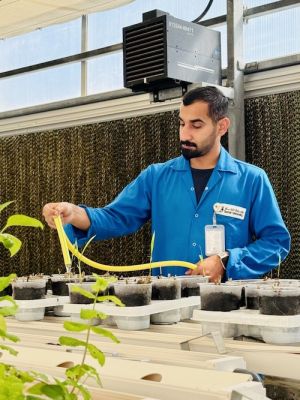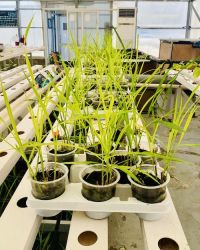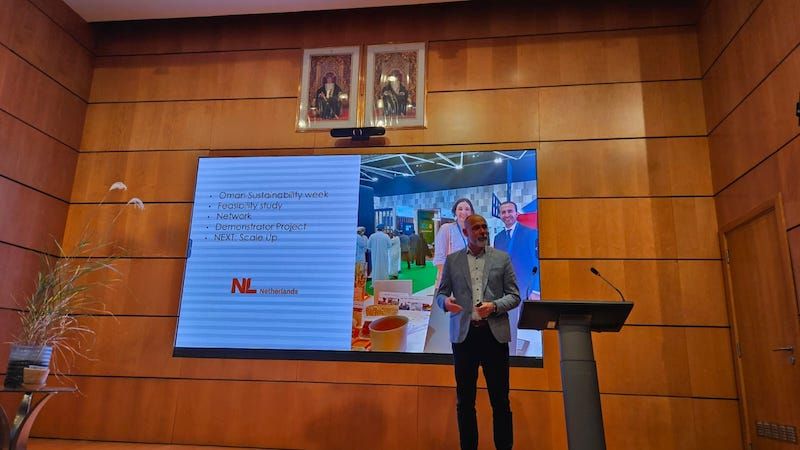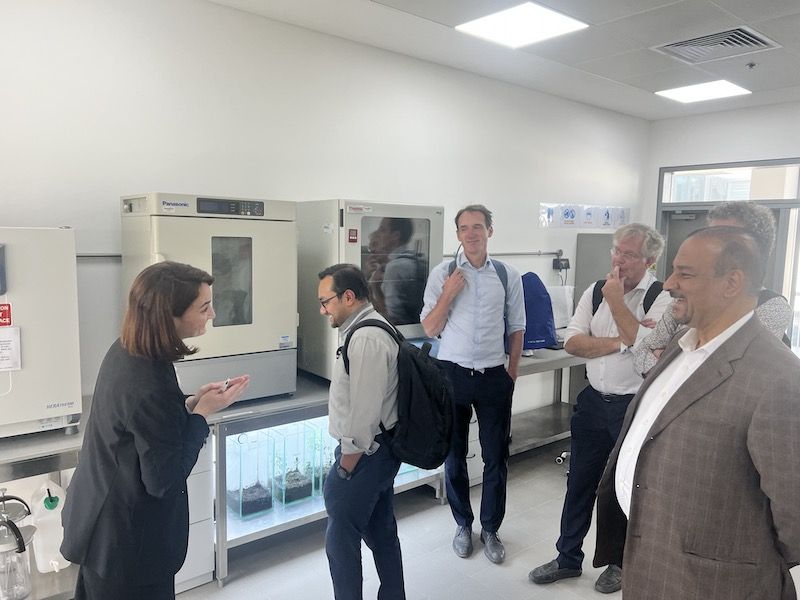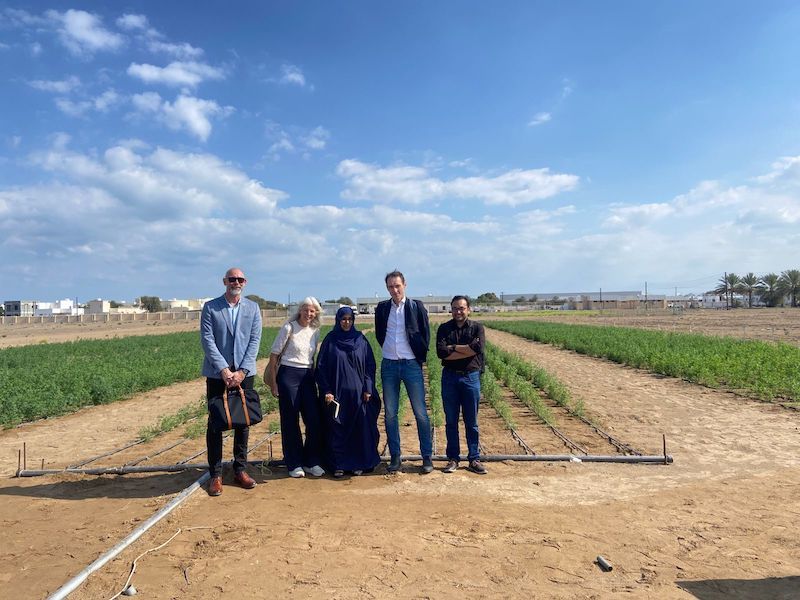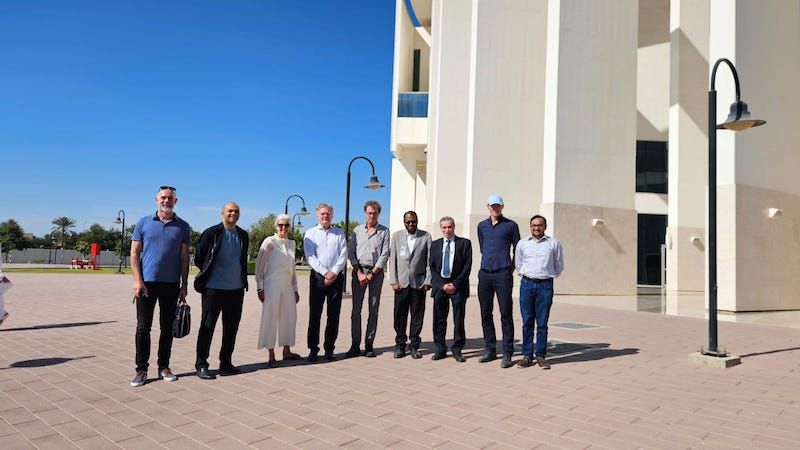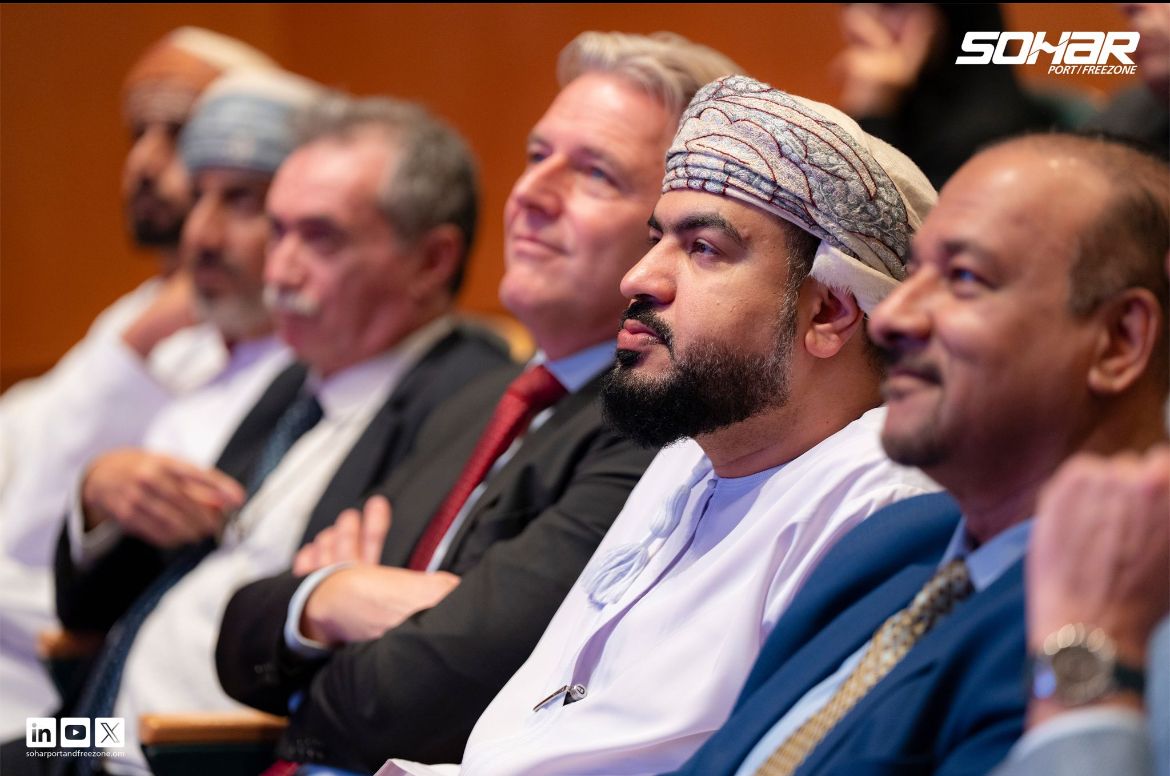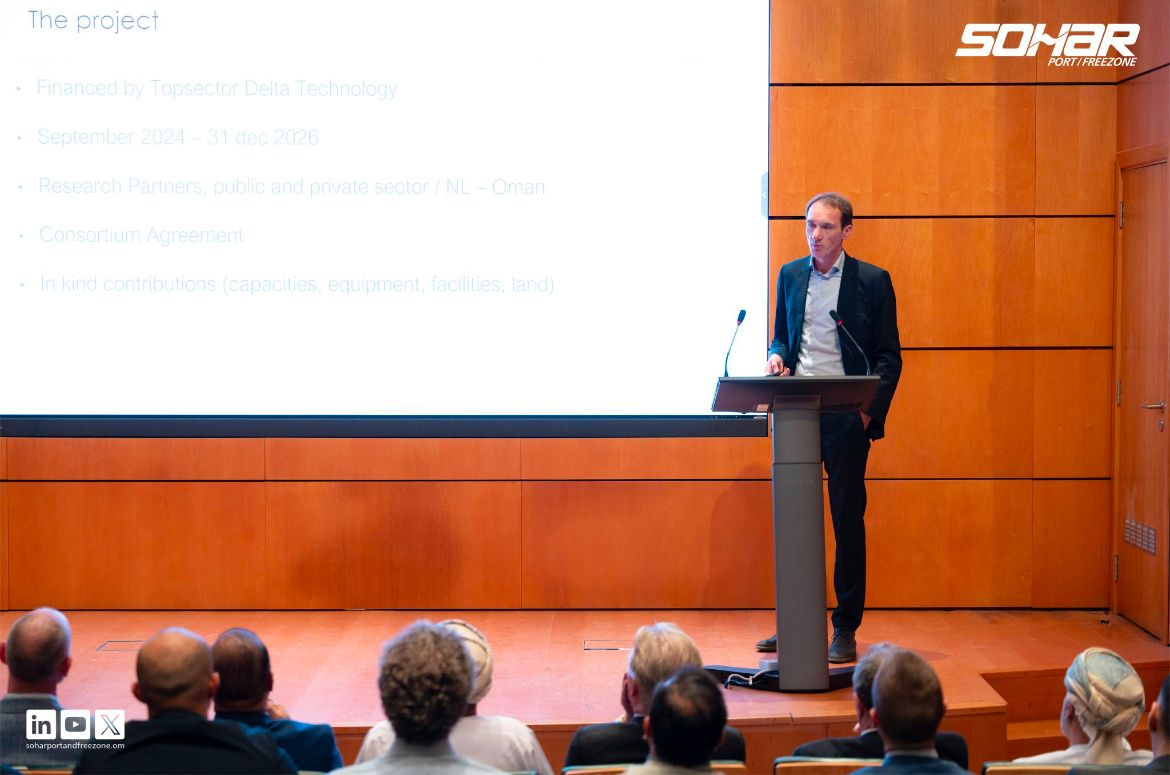Blue Harvest
Joint Innovation between Oman and The Netherlands
TKI-Delta project Blue Harvest
Blue Harvest is a demonstrator project aiming for sustainable food security and climate resilience, aligning with the Future Vision and policy objectives in Oman (oman2040.com) and other states in the Arabian Peninsula, such as Saudi Arabia and the United Arab Emirates.
The project involves fiber crop cultivation for multiple purposes, including sustainable construction materials production. Plants like Elephant Grass have already been successfully tested at the Sultan Qaboos University Fieldlab. The collaboration includes Omani and Dutch companies and Universities. Wageningen Research and Vybrant took the initiative for the project proposal within the TKI-Delta framework, as a follow-up to a feasibility study conducted for the Dutch Embassy in Oman.

The narrative of Blue Harvest involves exploring more sustainable agricultural practices and circular construction with a focus on smart and optimal water usage, reducing heat stress, cultivating renewable raw materials and investigating optimal fiber crop combinations. Circular construction practices include using wastewater by-products (sludge), plant fibers for 3D-printable concrete and bioplastics for indoor building materials.
Practical Demonstration, 6 locations
Scalable and Adaptable Model
The collaboration aims at joint knowledge development on cultivating a new fiber crop as a natural solution for addressing the effects of climate change (drought, heat stress, heavy rainfall and salinization) within a practical demonstration; creating a Nature Based Garden with a practical testing environment focused on optimizing innovation (production system) as well as finding partners interested in application and scaling, partners from the circular bio-based chain, as well as investors and interest from similar situations and potential initiatives in the broader region.
This makes the project not only relevant to the specific situation in the Gulf region but also valuable as a scalable and adaptable model for other areas facing similar ecological and agricultural challenges. The project is already a success from the start because it fosters collaboration and knowledge sharing across various domains.


